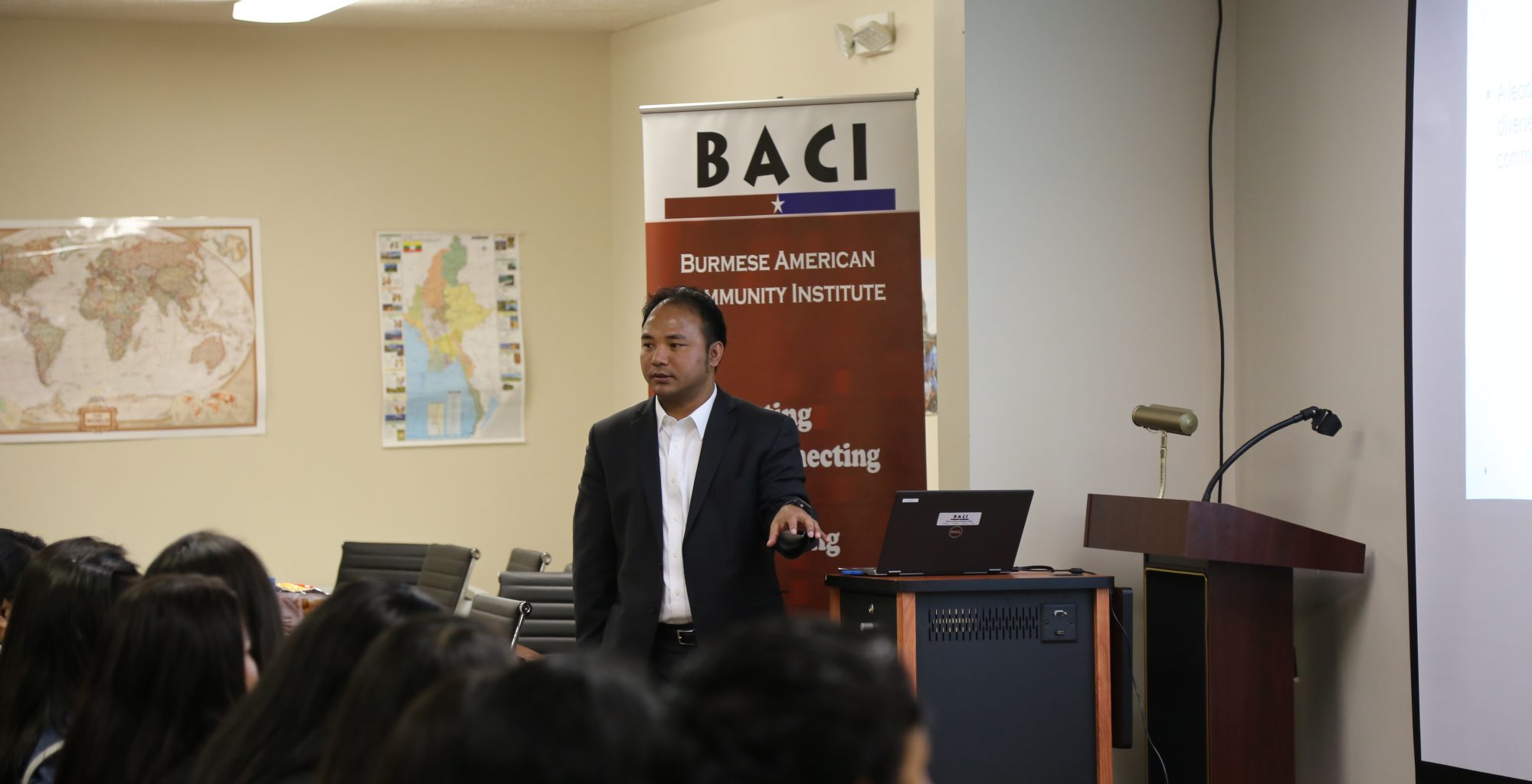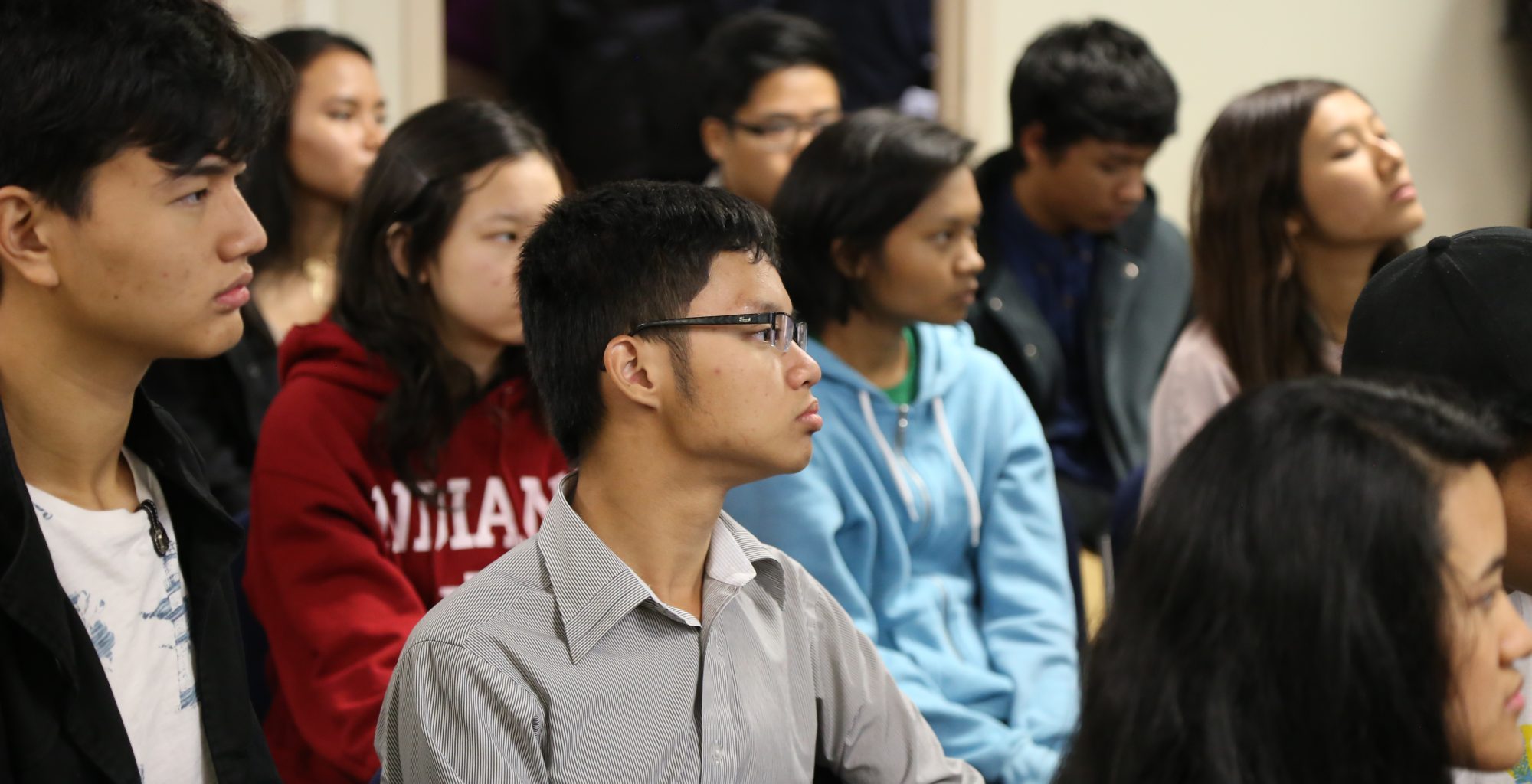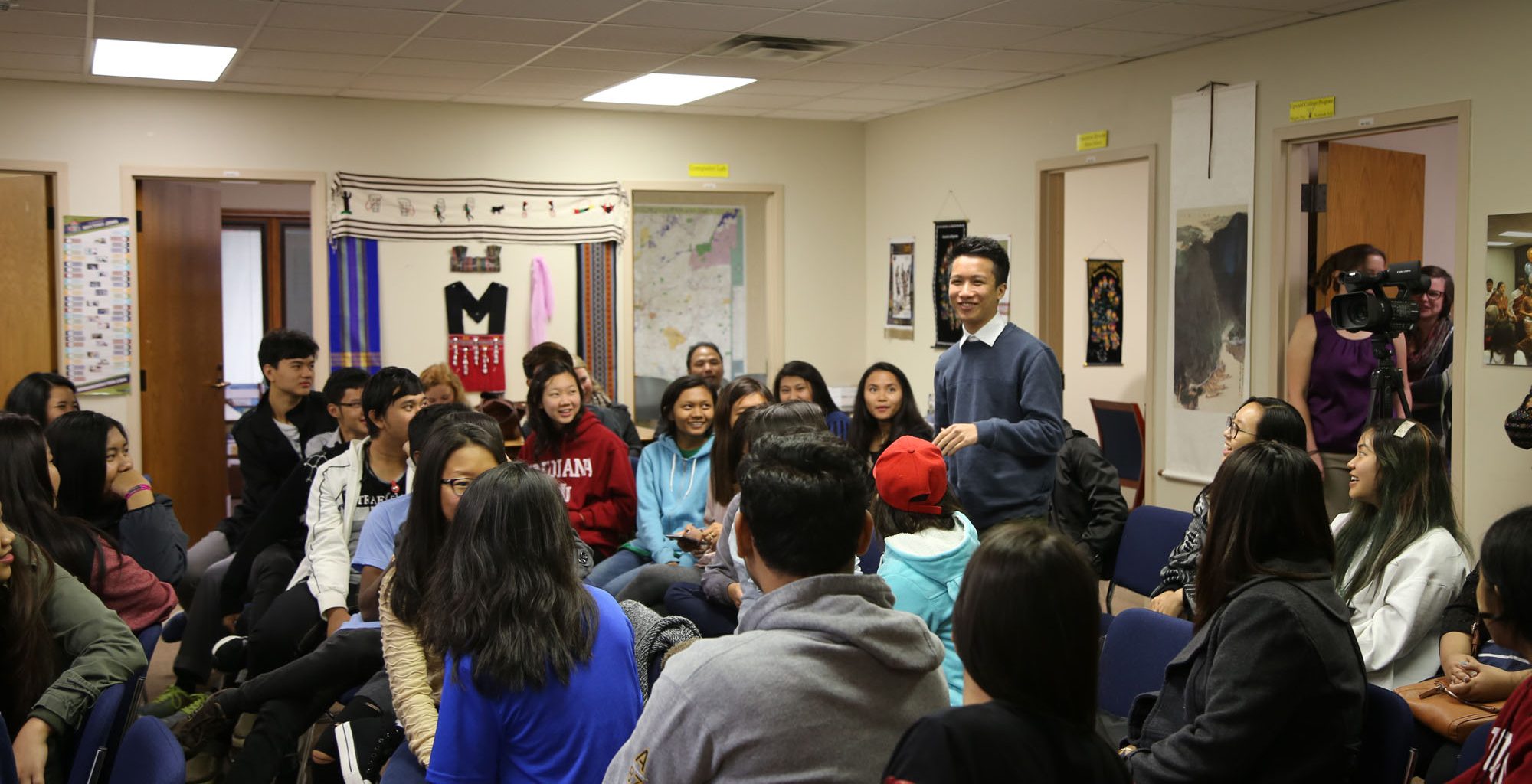Myanmar Youth Leaders in the U.S. Discuss the Future of their Country

Elaisa Vahnie speaking to the visiting young leaders from Myanmar
INDIANAPOLIS, MAY 5, 2017 – Young leaders from Myanmar participating in the Youth Leadership Program, led by Indiana University Bloomington and sponsored by the U.S. Department of State, engaged in a facilitated discussion on the future of Myanmar designed for the next generations of leaders.
A group of 20 from various institutions in the Southeast East Asian Nation representing different ethnicities participated in a two-day program hosted by the Burmese American Community Institute (BACI) as part of a four-week intensive and highly interactive program that seeks to promote high-quality leadership, civic responsibility, and civic activism.
In an interactive talk designed for the visiting students titled, “Towards Developed Democratic Society in Myanmar: Investing Future through Education and Leadership,” BACI Executive Director Elaisa Vahnie stressed the importance of parallel reform in Myanmar, fundamental change towards federalist democracy through constitutional amendment, and societal change usually achieved by development of democratic norms and values by social and economic advancement.
“The Myanmar political system must be reformed by amending the 2008 constitution, and to sustain this reform it must also invest in education and economic development as broadly and rapidly as possible,” said Mr. Vahnie.
He noted that to achieve these goals, certain approaches are needed and particular responsibilities should be taken. “The best way to achieve peace and development is through the ongoing national reconciliation, 21st Century Panglong peace process and to simultaneously implement a development vision aggressively and comprehensively”.
Responding to a question brought up by the visiting students during a facilitated discussion “what if the National League for Democracy (NLD) lost and other parties like USDP take power after 2020 elections? What will happen to the 60 years’ vision?” he said that it is up to all of us, the democratic forces to capitalize on the window of opportunity available and move forward to sustainable democratic development.
“The powerful and the wealthy have the main responsibility and moral obligations to the poor; to the weaker; to the most vulnerable, and to treat them equal with dignity and respect. But when they irresponsibly oppress and manipulate the helpless and minorities, that is not only counterproductive, but often ended up in a lose-lose situation in the longer-run. That’s bad for everyone; any society, any country.”
This is especially true for a country like Myanmar, he reminded, as the country is formed with extremely diverse ethnic and religious groups, and it is even more important that broad-based and inclusive policy in every area are adopted and that all citizens embrace unity in diversity with mutual respect and recognition, regardless of one’s ethnic and religious background.
He urged the students to be united in purpose and principle in order to reach the common goal, and reject any party that tries to use ethnoreligious extremism as a tool to achieve their political objectives.
“If the Chin care and work only for the Chin, the Kachin only for the Kachin, the Karen only for the Karen—then how are we better than the Burman majority chauvinism that has employed the military and mistreated, discriminated against ethnic and religious minorities for nearly 70 years? It is time we leave behind this pattern of nationalistic populist thinking that always tries to politicize people. These people are often more interested in our differences rather than our commonalities and mutual benefits. They are divisive, become part of the problems rather than solution. That is not how the 21st century leaders like you should think.
We ethnic minorities also need to change our way of thinking—instead of always demanding what we want from the Burman majority and the military, we must cultivate within ourselves the mindset and the culture that what we can give for our country and contribute to the Union level—and for all.
If you are in a position, it is our responsibilities to make sure that no one, no ethnic group feels they have been neglected or marginalized because they are smaller, weaker, or they are minorities by treating them the same and equal. We must apply this philosophical thinking, values, and principles right from here —from the individual, local to national level—everywhere anywhere we are. Then we can hope for a much better future,” Vahnie encouraged the students.
“Always put people and common interests first—look to the future, and together, we can build a better one.”

The Youth Leadership Program collaboratively implemented by the Office of International Development at Indiana University Bloomington is funded by the U.S. Department of State’s Bureau of Educational and Cultural Affairs. The visit was designed to enhance leadership skills and position participants to become effective and engaged citizens upon their return to Myanmar.

About BACI
The Burmese American Community Institute (BACI) is a non-profit organization founded in 2011 that provides educational and vocational support to the Burmese community in greater Indianapolis. The BACI also supports community members regionally, nationally, and globally through strategic partnerships and advocacy.

If they come back here and make themselves useful, there might be success.